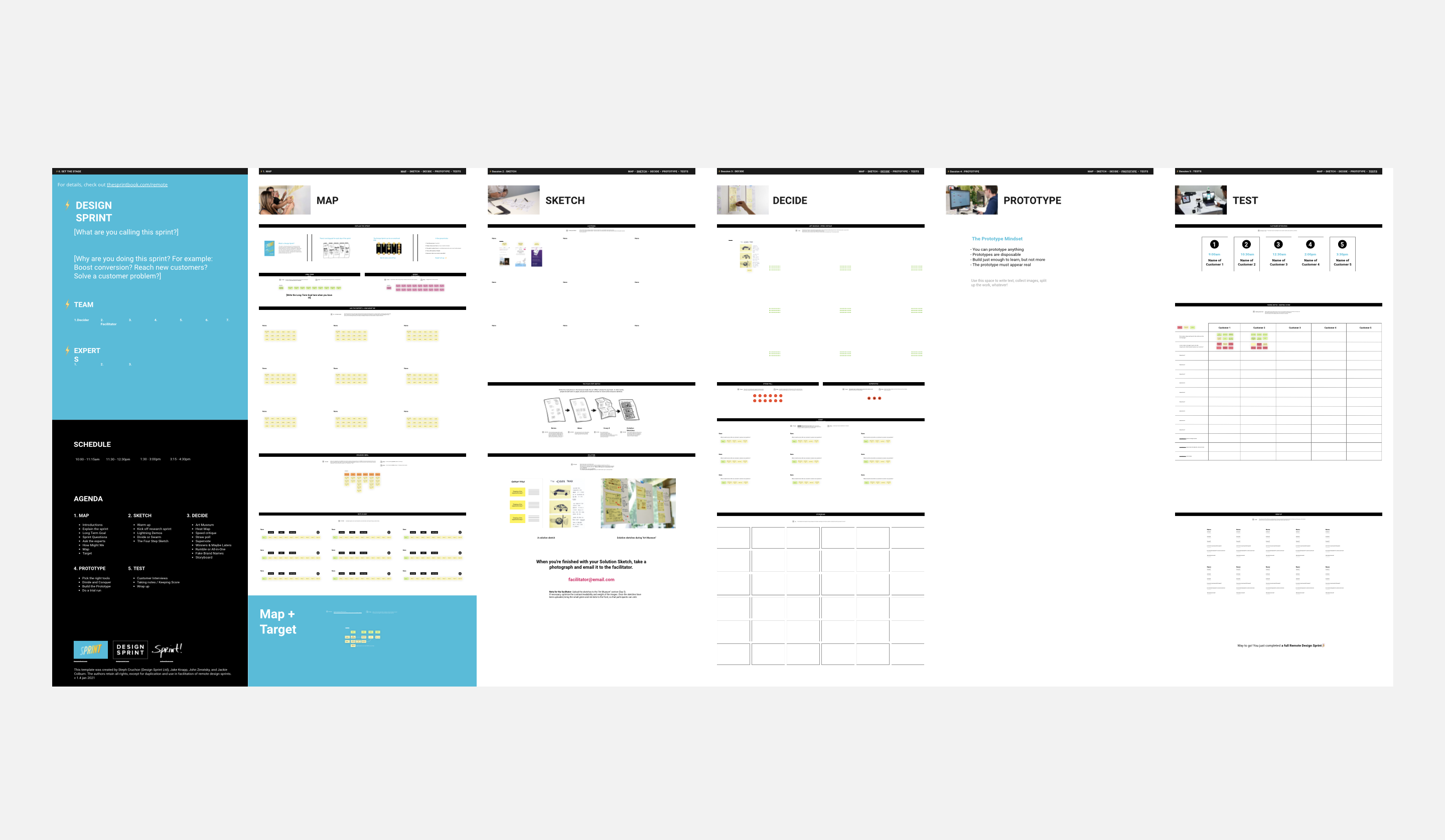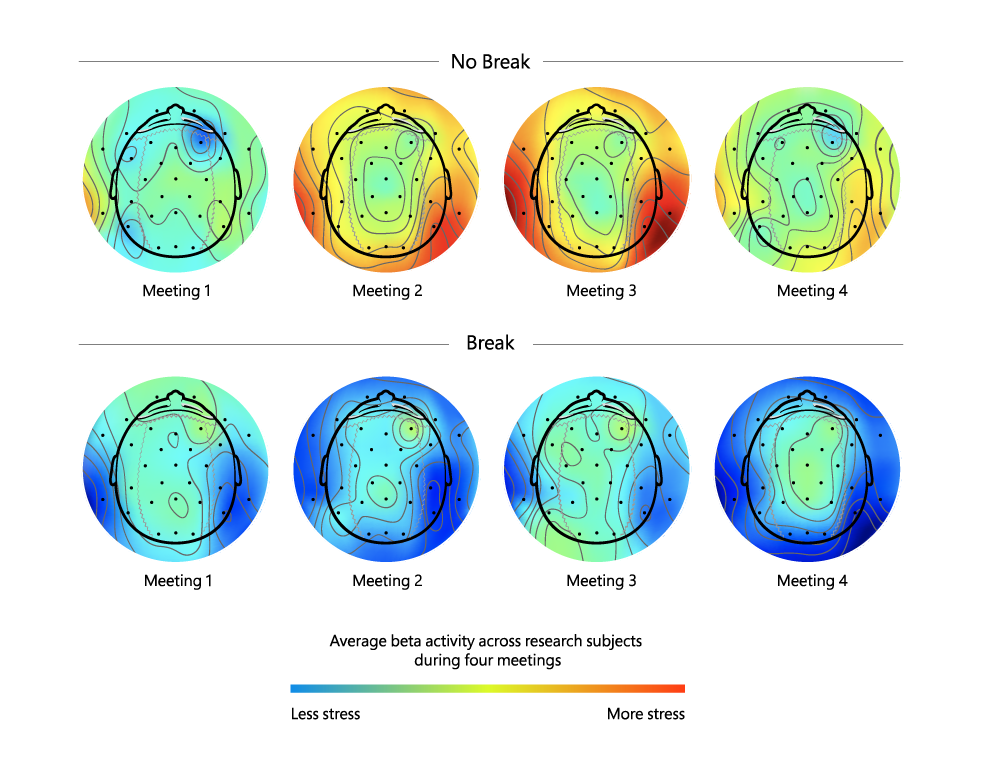With the increasing number of companies embracing remote work, the ability to successfully perform Remote Research or Remote Design Workshop with your user base might be the critical asset for the success of your business. Before we dive-in into the technicalities and tools used by our team - let us share the insights that helped us switch to an effective remote-research design team.
1. Time is of the essence.
Long gone are the times of two- to five-day workshops with six to eight-hour sessions. The "old" methods used to work in controlled environments with participants able to commit throughout the week fully and finish exhausted every night.
During remote design sprint exercises, the participants often deal with typical "work from home" distractions like troublesome internet connections or family and pets at home or the occasional delivery man.
This means one thing - the shorter the workshop, the better. It's not solely about time-saving but rather about strain reduction. Multiple video call sessions spread out across the week, lasting no more than two to four hours a day – including breaks.
2. Efficiency is key.
Design Sprint is one of the best methods for focusing and addressing specific business challenges your company might be facing. This efficient and focused method proves invaluable with the new environment and time constraints imposed by the pandemic. Never before we had to be so true to the following three rules:
- Pick a problem that is researched enough to have a well-defined problem statement
- Choose the right people for your workshop – you want to have no more than five people who can bring to the table a cross-functional experience.
- Pick only exercises that can be transferable to an online workshop environment or digital whiteboard tools
3. Use whiteboard examples or video
We use two different techniques to help our clients effectively complete the workshop exercises on their own. The first technique involves:
- Creating prebuilt digital whiteboard templates - including exercise examples.
- Outlining the complete workshop process within the whiteboard tool
- Detailing next steps, highlighting work performed & consulted online and exercises delivered unaided in one's own time.
 5 Day Design Sprint Workshop whiteboard layout - Source: Miro.com
5 Day Design Sprint Workshop whiteboard layout - Source: Miro.com
By delivering a clear roadmap for all the steps included in the remote workshop, you help participants visualise the process and designate areas they might feel most effective. Digital whiteboards also allow you to include a video introduction to the actual exercise. We found that a 5-to-10-minute video explainer of a prebuilt whiteboard can do wonders in helping kick off the workshop process.
4. Technical preparation is a must
One of the non-obvious challenges revolves around the participant's digital infrastructure – for some of our clients, the bandwidth or VPN limitations restrict some of the tools we can use. Some of the third-party workshop tools might be inaccessible to your workshop participants.
Finding out which video conferencing tool is preferred and accredited by the client can make or break your entire workshop or at least help you avoid technical hurdles at the start. You should also pay the same attention to the third party virtual whiteboard or prototyping software.
The technical prep might define the form of user research interview or dictated a prototyping method - for example, being only able to perform phone call interviews instead of a third party assisted prototyping session.
5. Reduce the video calls to a necessary minimum
What is now named "Zoom fatigue" is a killer of productivity and efficiency among employees worldwide. For this reason, we follow a straightforward rule that most strongly defines our approach to practical remote workshops and revolves around reducing the time on inefficient calls.
With most of the workshop items set up for individual and remote work, we limit video calls to one-to-one interviews and constructive virtual cooperation exercises. You will get far better results from limited consultation and cross-examining session rather than time spent online with your clients filling out forms or completing individual tasks. Work offline – consult online is our main motto for practical virtual workshops.
 Source: Microsoft/Brown Bird design
Source: Microsoft/Brown Bird design
6. Team up!
For those intensive group workshops, which are likely to happen more than once during a research or discovery exercise, an extra "pair of hands" will prove invaluable. An additional researcher or designer by your side will help you with taking notes, working on virtual whiteboards, answering workshop related questions, and managing the entire virtual call.
The extra strain induced in the process of absorbing information via video calls might often leave both you and your client strained at the later stages of the call. Therefore an additional team member is more likely to pick up and follow up on minute details that might get easily lost in the research process.
7. Digitize for future reference
After performing any workshop, you are likely to gather information valuable not only to that specific problem you aimed to tackle in the first place but also crucial in determining a different product or business goal.
By utilising digital whiteboards, online prototyping, video recordings, and shared data storages, you build a repository of accessible and organised research and workshop data. Your research work and effort is no longer a "single-use" fix but becomes a building block for what we name a "Continuous Product Discovery" – a process of continuously solving specific product challenges in the process of prototyping and experimentation. The most efficient and effective way of solving business problems.
These are the seven steps we take to ensure our online research and design workshop exercises can deliver business-changing results despite the limitations inferred by the COVID-19 pandemic.
If you think your company could enormously benefit from a small workshop, book a quick 30-minute call session and walk us through specific workshop challenges, share your questions regarding agendas, timing, participants or concepts. We are happy to help you find out how you can efficiently utilise remote workshops to win over your users and get ahead of your competition.
Sources:
https://hbr.org/2020/04/how-to-combat-zoom-fatigue
https://www.microsoft.com/en-us/worklab/work-trend-index/brain-research

.jpg)


